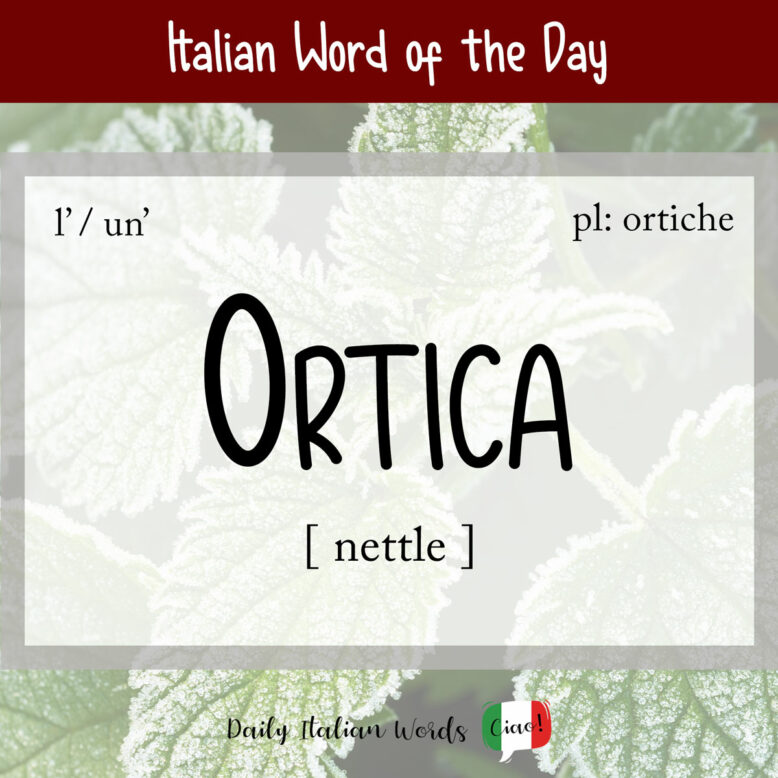One of the more traumatic memories from my time living in Italy involves a walk along the River Po in Torino with a little girl I used to babysit. About halfway along the path, she decided to climb up the river bank, and took an unfortunate tumble into an enormous patch of nettles. Between her unhappy sobs and my feelings of overwhelming guilt for letting her climb up there in the first place, suffice it to say that the last leg of the walk wasn’t at all pleasant!
The word for nettle in Italian is ortica. It derives from the Latin urtica, and indeed, the archaic form of ortica in Italian was urtica.

The noun is feminine, and the plural form is ortiche. The definite and indefinite articles it takes are as follows:
l’ortica
the nettle
un’ortica
a nettle
le ortiche
the nettles
delle ortiche
(some) nettles
The nettle may appear to be nothing more than an invasive plant on the surface, but it is actually a key ingredient in a variety of dishes, including:
- risotto alle ortiche = nettle risotto
- frittata alle ortiche = nettle frittata
- tisana all’ortica = nettle tea
- ravioli alle ortiche = nettle ravioli
- zuppa di ortiche = nettle soup
Hai mai mangiato il risotto con le ortiche?
Have you ever eaten nettle risotto?

In order to describe an overgrown, abandoned location, you may hear the expression ci crescono le ortiche – literally ‘nettles grow here‘. It is an allusion to the fact that nettles thrive on uncultivated land.
The expression gettare / buttare alle ortiche (lit. to throw to the nettles), on the other hand, means to abandon something altogether, such as a passion, interest, opportunity or investment.
Ho gettato alle ortiche quattro mesi di studi per dedicarmi alla musica.
I threw away four months of study to dedicate myself to music.
The ortica also gives its name to the ortica di mare, a type of sea anemone found in the eastern Atlantic Ocean and Mediterranean Sea which, like nettles, has urticant properties before it is cooked.
Heather Broster is a graduate with honours in linguistics from the University of Western Ontario. She is an aspiring polyglot, proficient in English and Italian, as well as Japanese, Welsh, and French to varying degrees of fluency. Originally from Toronto, Heather has resided in various countries, notably Italy for a period of six years. Her primary focus lies in the fields of language acquisition, education, and bilingual instruction.


